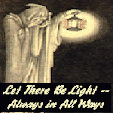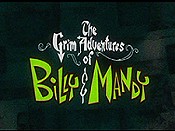Heatwave: A New Disaster Movie in the making... in real life.

Photograph of Chicago's mass grave for its 1995 heat-wave victims by Beth A. Keiser/AP. No less than sixty-eight people are buried there.
1999 - 110 Chicagoans died during a heatwave
And this year, over 130 have died in California from the most recent nationwide heatwave...
The 68 dead buried in that site are by no stretch of the imagination the total number of victims that year - for in a single week of July 1995, 739 Chicago residents —the majority of them home alone— died in one of the greatest and least-known American disasters in modern history.
The fact of the matter is, heat waves kill more people in the United States than all of the other so-called natural disasters combined. Hurricanes are more spectacular, that's all. You can see a hurricane coming - you don't see the heatwave, you feel it, and you make the mistake of assuming that your air conditioner will be up to snuff to fight off any discomfort it may bring in the long run, which you would qualify as "slight" even... The problem is, one will have to get around with one's daily business - leaving home will be akin to crossing the desert with no oasis in sight. And, as we get older, such a daunting feat is less and less feasible...
More than 400 Americans die from heat-related illnesses in a typical year. Annual mortality from tornadoes, earthquakes, and floods together is under 200. - Eric Klinenberg, associate professor of sociology at New York University and the author of Heat Wave: A Social Autopsy of Disaster in Chicago.
That says it all right there.
http://www.slate.com/id/2068612/
....




































3 Comments:
medical examiner: Health and medicine explained.
Dead Heat
Why don't Americans sweat over heat-wave deaths?
By Eric Klinenberg
Posted Tuesday, July 30, 2002, at 11:31 AM ET
It's not easy to picture a heat wave. We all carry stock mental photos of more camera-ready extreme weather, such as hurricanes, tornadoes, earthquakes, and floods. These natural disasters are so visually spectacular that they make the front page or the TV news even when they occur in remote places. Extreme heat, on the other hand, is invisible.
But heat waves kill more people in the United States than all of the other so-called natural disasters combined. More than 400 Americans die from heat-related illnesses in a typical year. Annual mortality from tornadoes, earthquakes, and floods together is under 200. Since heat waves inflict damage on the nation's major cities, well within the range of most media organizations, the lack of visibility or panic is all the more mysterious.
--------------------------
--------------------------
Heat-wave deaths aren't the worst natural disasters only in quantitative terms, but also in qualitative ones because they're slow and preventable. There's no telling when an earthquake will strike. But dangerous heat always comes announced, and it's fairly easy to prevent human damage. Victims of heat tend to wilt gradually, alone and at home, out of touch with family, friends, and social-service providers who could save their lives simply by treating them with water or bringing them to an air-conditioned place.
In the past three decades, New York City (1972, 1984), St. Louis (1980), Philadelphia (1993), Dallas (1998), and Milwaukee (1995) have experienced massively deadly heat waves. But in recent years, Chicago has become the national epicenter of heat mortality. This summer, Chicago had recorded 27 heat-related deaths by July 22. That's small by current standards. In one week of July 1995, 739 Chicago residents—the majority of them home alone—died in one of the greatest and least-known American disasters in modern history.
To place the 1995 heat wave in context, think of the great Chicago fire of 1871. It killed less than half as many people. Other recent catastrophes, such as the Northridge, Calif. earthquake of 1994 or Hurricane Andrew of 1992, killed one-tenth and one-twentieth the number of people, respectively. Yet several lists of the most fatal American weather events of the 1990s fail to include the heat wave. In the words of the New England Journal of Medicine, the Chicago disaster "was forgotten as soon as the temperatures fell."
That's generous. From the moment the local medical examiner began to report heat-related mortality figures, political leaders, journalists, and in turn the Chicago public have actively denied the disaster's significance and questioned whether the deaths were—to use the popular local phrase—"really real." Although so many city residents died that the coroner had to call in nine refrigerated trucks to store the bodies, skepticism about the trauma continues today. In Chicago, people still debate whether the medical examiner exaggerated the numbers and wonder if the crisis was a "media event" that the press had "propped up somehow." The American Journal of Public Health definitively established that the medical examiner's numbers actually undercounted the mortality by about 250 since hundreds of bodies were buried before they could be autopsied. But how many people read the American Journal of Public Health? For now, the heat wave stands as a nonevent—perhaps a footnote—in the grand narrative of affluence and revitalization that dominates accounts of urban life in the 1990s.
One reason so many people die in heat waves is that more Americans seem to be living and dying alone than ever before. In San Francisco, for example, officials report that they discovered almost as many cases of people who died alone, with no one to claim their bodies and estates, during the first six months of 2000 as they had in the previous decade. In Chicago, one month after the 1995 heat wave, county officials buried 68 people, most of them heat-wave victims, in a 160-foot-long trench.
Could it happen again? It already did. In 1999, over 110 Chicagoans perished in a late-July and early-August heat spell despite an exemplary response from city government that undoubtedly saved lives. Clearly, industrious local officials can only do so much.
There are a few simple and relatively inexpensive measures that could prevent future heat deaths. Cities can implement the heat-warning system designed by Laurence Kalkstein at the University of Delaware, a system that distinguishes dangerous air masses from ordinary summer heat. We can expand the supportive housing and social-service programs available to the people most likely to die in heat waves. And Congress can provide the poor with energy subsidies for summer cooling, just as it does for winter heat. (Rep. Danny Davis is now mobilizing support for such a bill.) Although it is cheap and effective, the Low Income Home Energy Assistance Program remains a favorite target of budget-cutters. In most cities LIHEAP funds run out long before the need ends. Just one week after the heat wave of 1995, with dozens of victims still unclaimed in Chicago, the House overwhelmingly approved a proposal to reduce LIHEAP funds. But compared to the cleanup costs and refunds the federal government routinely doles out to homeowners and corporations who suffer property damage in other disasters, the costs of preventing heat deaths are low. It's just a question of whether we value the lives of poor city dwellers as much as the property of wealthy coastal developers.
Eric Klinenberg is associate professor of sociology at New York University and the author of Heat Wave: A Social Autopsy of Disaster in Chicago.
Join the Fray: our reader discussion forum
What did you think of this article?
----------------
Notes From The Fray Editor:
Every time I hear about a heat wave, I think of the opening section of Saul Bellow's The Victim and Asa's mix of pity for and anger at his sister-in-law and his sick nephew as they swelter away on Staten Island. The Fray, not exactly the place to look for Bellow's range, tended to pick either pity or anger. The anger skeeved me out, so I am appending some pity and some history.
Remarks From The Fray:
If a child dies because he or she is left locked in a car in the summer sun while their parent drops into a Starbucks for a latte, the story is carried nationwide by the media, the nation is shocked, the guilty parent is led away in handcuffs. If a 90-year old who is every bit as trapped in his or her un-air-conditioned apartment (by physical and financial incapacities not uncommon to old age) as the toddler is in the car-seat of the locked automobile, dies a death from dehydration as predictable and preventable by common sense, common decency measures as the toddler's death -- there is no public outcry, and there will be no guilty parties, no matter how egregious their neglect, led away in handcuffs.
The difference is that we, as a society, hold parents responsible for providing for the welfare of their minor dependents, but we refuse to recognize any parallel responsibility for adult children to provide for their parents, even as those parents decline into a dependence on others as profound as that of a newborn.
The single case of death from child neglect is a safe topic for outraged public notice because the vast majority of us take reasonable care of our children. How many of those with toddler or infant children reading this posting do not know exactly where those children are, and under what conditions they are being cared for right now? We cannot afford to register even mass death due to elder neglect because a large percentage of us are guilty, have only missed having parents die of neglect through luck or the kindness of strangers. How many people reading this posting know exactly where their parents are right now? Have a clear idea of their ability to fend for themselves in the face of a heat wave, or just in the face of daily life?
-- Glen Tomkins
It's also not a new phenomenon. If you look at mortality statistics from the non-air-conditioned past, the "Dog Days" were deadly for not only the elderly, but infants. And if you go far enough back, summer was deadly for persons of all ages -- in the form of diseases like malaria and yellow fever. For example, the summer of 1793 saw the deaths of 4,000-5,000 in Phildalphia alone from yellow fever -- about 10% of the population of what was then the nation's capital. Both Washington and Jefferson fled for their lives: even death was more democratic back then.
-- Gerard Winstanley
(7/31)
DANI CALIFORNIA...
SHOULD HAVE KNOWN THAT I WAS GONNA MOURN YA...
California heat wave death toll tops 130
Woodland Hills breaks L.A. county record with 119-degree heat
Friday, July 28, 2006; Posted: 4:06 p.m. EDT (20:06 GMT)
Firefighter Capt. David Cornelssen cools off after battling a house fire in Santa Rosa, California.
RELATED
• Is it global warming?
• Nevada wildfires burn 'hotshots'
• Heat wave hits Europe
• Heat wave kills people, cattle
YOUR E-MAIL ALERTS
California
Power Outage
or Create Your Own
Manage Alerts | What Is This?
FRESNO, California (AP) -- The death toll from California's record-breaking heat wave reached 132 on Friday, the first day in nearly two weeks that temperatures were expected to stay below 100 degrees across most of the state.
The big jump in the death count came primarily from Los Angeles County and the Central Valley counties of Merced and Stanislaus, where coroners struggled to keep up.
"This is unprecedented for the county," said Stanislaus County Office of Emergency Services spokesman David Jones. The county, home to Modesto, typically sees one heat-related death a year, he said. On Friday, it reported 29. (Watch how people stay cool and police save lives -- 1:45)
The vast majority of deaths believed linked to the heat wave were elderly people, whose bodies don't cope as well in the heat. But there have been younger victims as well: A 38-year-old gardener collapsed on the job and died last week; on Wednesday, two brothers, ages 57 and 68, were found dead in a home without air conditioning.
Many of them probably underestimated the potential for harm, county coroners told The Associated Press.
"They've dealt with heat forever," said Sgt. Sue Norris, supervisor of the Merced County coroner's office. "They don't think that it could be a real danger."
The entire state has been sizzling in triple-digit temperatures since July 16. Only Friday were the heat advisories finally lifted, as meteorologists said the heat wave appeared to be nearing its end.
"By Monday, Tuesday we'll be even cooler than normal," said Mike Delman, a meteorologist at the National Weather Service. In the extended forecast, "It might warm up a bit, but nothing like what we had."
The Central Valley bore the brunt of the heat wave with temperatures hitting 115 degrees. On Thursday, aid workers in Fresno went door-to-door checking on the elderly as the number of suspected heat-related deaths climbed.
In the Fresno County morgue, the walk-in freezer was stuffed with bodies, with some piled on top of others, said Coroner Loralee Cervantes. With limited air conditioning, employees worked in sweltering heat as they investigated at least 22 possible heat-related deaths.
State of emergency
State Sen. Dean Florez said he called on Gov. Arnold Schwarzenegger to declare a state of emergency in the Central Valley to make more financial and personnel resources available.
"The conditions, staying this hot for this long, are simply too much for the most vulnerable residents," Florez said.
Schwarzenegger said he had already taken action to help residents cope with the heat, pointing to 75 cooling centers available at fairgrounds and conservation measures to avoid blackouts.
"There's not much more we can do," he said. "I don't know what it means to declare a state of emergency when we're already doing everything."
At least six Central Valley counties declared local states of emergency that allow farmers to bury livestock killed by the heat in landfills or on their own properties -- disposal methods not normally allowed by state water laws.
The number of consecutive days when temperatures surpassed 110 degrees was unprecedented for California, meteorologists said. Woodland Hills, which set a Los Angeles County record of 119 degrees Saturday, hit 102 degrees on Thursday, its 22nd day of triple-digit heat.
Gobbling energy
Californians trying to keep cool have also set records for energy consumption, forcing some voluntary blackouts and even catching the Department of Water and Power officials by surprise.
Before this week, the utility's highest peak energy use was recorded at 5,661 megawatts. The heat wave created a demand of 6,165 megawatts -- shocking officials who predicted usage wouldn't top 6,100 megawatts for another four years.
"They didn't even believe our customers could ever put such a load on our system -- that we could even have energy use from our customers up to that kind level," DWP board member David Nahai told the Los Angeles Times. The utility serves 1.4 million customers.
July has seen extreme heat across the country. In St. Louis, the misery was worsened by storms that knocked down power lines last week in the worst blackout in city history. Most of the 12 Missouri deaths attributed to the heat wave occurred in the St. Louis area, where about 34,000 homes and businesses remained without power Thursday.
Missouri regulators opened an investigation into whether AmerenUE and other utilities were properly prepared for the storms, and whether they responded adequately.
Copyright 2006 The Associated Press. All rights reserved.This material may not be published, broadcast, rewritten, or redistributed.
GIMME A BREAK!
Save on All Your Calls with Vonage
Save 50% on your bill with Vonage unlimited local/long distance -...
www.vonage.com Homeowners - Don't Miss Out
$145,000 mortgage for $484 per month. Refinance while rates are still low.
www.lowermybills.com Refinance with Bad Credit
Compare up to 4 free quotes. Serious refinance requests only.
www.homeloanhelpline.com
More Useful Links
• Get a New Car Cheap
• Baby Registry
• Electronics
NO REALLY NOW - GIMME A DAMN BREAK, WILLYA?!?
Post a Comment
<< Home